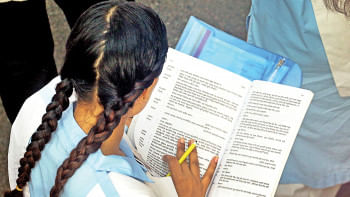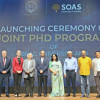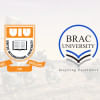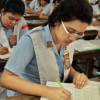The underlying effects of the current HSC culture

After a disappointing SSC result, life hit me like a truck full of reality checks. I toiled extremely hard for the next two years and prepared myself for the HSC. I had to score high enough in HSC to sit for the Bangladesh University of Engineering and Technology (BUET) admission test and prove myself worthy. I was confident of my skills but all I needed was for life to give me a second chance and it did, through HSC. HSC, for numerous others like me, is a redemption for their previous shortcomings and an opportunity for a level playing field.
HSC cancellations force universities to set entrance exam qualification criteria based on whatever rating factors they have at hand, which is the SSC marks. Thus, students who might have had an unsatisfactory result in SSC have no opportunity to rectify themselves and get into their desired institutions no matter how capable they really are. Even from the university's point of view, they end up losing a lot of deserving candidates in the process.
For example, the candidate who stood first in the Islamic University of Technology (IUT) entrance exam for HSC batch '22 couldn't even sit for the preliminary examination of BUET. It's not about which institution that person would've preferred. Rather, it's about missing out on the opportunity they deserved.
After 2019, HSC exams have been conducted on inconsistent terms and conditions. The standards of which have not been good enough as they failed to adequately evaluate students' true potential. In 2020, the HSC exams were cancelled altogether, and SSC marks were chosen as the selection criteria for entrance tests. After 2020, the syllabus was shortened for each subject, thus creating a huge gap in the students abilities. For example, the chapter on electromagnetics was removed from the syllabus, the preliminary knowledge of which is an essential criterion for students pursuing engineering as an undergraduate. Some courses in universities are designed considering that students have preliminary knowledge of these basic topics. This leaves the students completely unprepared for such courses.
In 2021, the HSC was held on six subjects and only 32 marks. 12 MCQs out of 25 and two creative questions out of eight had to be answered. Consequently, the preparation for such a lenient evaluation process proved to be much more ineffective than previous years' HSC exams and, in the process, the exam lost a great deal of its credibility.
Universities could no longer trust the process of filtering out students based on their HSC results and evaluate them based on the shortened syllabus. Students had to prepare differently for university entrance exams and read extra chapters that weren't a part of their HSC syllabi. The admission process, which in itself is complicated, became even more difficult for these batches compared to their previous ones. And most importantly, a lot of qualified students lost their shot at getting another opportunity to prove themselves where it mattered the most.
The formation of this new Bangladesh was ignited by a movement that believed in prioritising merit over quota systems. A lot of blood was shed and lives were lost. Farhan Faiyaaz, a first-year student at Dhaka Residential Model College who was shot dead, would have sat for the HSC next year. A merit-based evaluation was everything martyrs like Farhan and this movement stood for. Establishing this culture of auto-pass and short syllabi takes that away from the students.
An unqualified population is an autocrat's greatest asset. It's high time we recovered the damages caused by the previous regime to the HSC curriculum and restored a fair board exam that impartially evaluates the students, as it is supposed to.
Remind Ifti to be less quiet at [email protected]

 For all latest news, follow The Daily Star's Google News channel.
For all latest news, follow The Daily Star's Google News channel. 









Comments